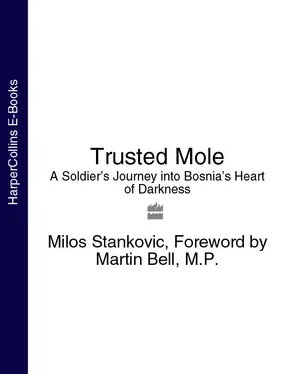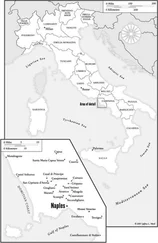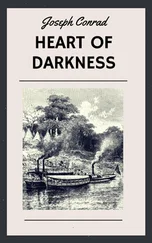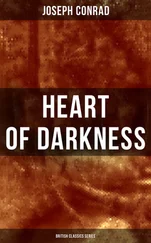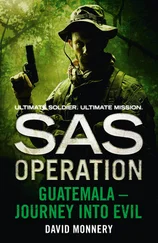‘How long’s this been going on for?’ snapped Cumming, now hugely concerned that his logistics and engineer bases were being attacked.
‘About twenty minutes.’
‘Any casualties?’ His tone was unmistakable.
‘None as yet. Too early to tell. Everyone’s under cover except …’ except the loony under the table.
‘Right, I’m off to TSG. Get hold of the Chief of Staff in Split. Tell him what we’re up to.’ And with that we swept out of the Ops Room. The Brigadier was right of course. He could hardly sit around in Vitez or, worse still, retire to Fojnica, while his troops were under fire. I told Corporal Fox and Seb what was happening. They’d had the presence of mind to get the vehicles fuelled up.
Ahead of us stretched a long journey: Route Diamond to Gornji Vakuf, around the lake at Prozor and then the long climb up over the ‘mountain’ on Route Triangle. This was the worse of the two main supply routes into Central Bosnia, a hell of frozen ruts, tortuous bends, precipitous slopes and broken-down and stranded vehicles. It would take us hours.
I doubt there was a man among us who didn’t feel a buzz of anticipation.The military is a peculiar profession. It’s crammed full of frustrated people – highly trained, frustrated professionals. Unlike any other profession we rarely actually put into practice what we train for ad nauseam. In a sense, we’re untried, untested, and always there’s that little nagging doubt, that little question – how would I cope? Would I do the right thing? Would I freeze? Panic?
Sometimes there are incidents and soldiers are shot at, attacked, bombed, and they are tested. But it doesn’t happen to everyone. Most of the time nothing happens. I’ve done three tours in Northern Ireland, one in the bandit country of South Armagh, and I’ve never been shot at, heard a shot fired in anger or heard a bomb go off. There are the occasional blips – the Falklands and Gulf Wars, where people really are tested and really do ‘see an elephant’ as the Americans refer to combat: ‘Few people have actually seen an elephant, most have only had one described to them.’
It’s an odd arrogance that underpins opinion on being in combat. The US Army is almost obsessive in this respect. As a visual manifestation of this, soldiers who have ‘seen their elephant’ wear on the right sleeve of their fatigues the patch or emblem of the unit or division with which they served on operations – ‘look-at-me-I’ve-been-there’ symbolism. Those unlucky enough not to have been on operations can only wear on their left sleeve the patch of the division with which they are currently serving; their right sleeves remain bare. Fortunately, we have no such rites of passage badges in the British Army, just medals which we’re required to wear so infrequently that most people can’t remember where they’ve put theirs.
As a very young soldier I remember well one night in McDonald’s in Aldershot. It was June 1982 and 2 and 3 PARA had just returned from the Falklands War. The place started to fill up with a gang of Toms from 2 PARA, all wearing ‘Darwin and Goose Green’ sweatshirts. All were drunk.
‘An’ where were you fookin’ craphats while we were scrapping wi’ the Argies?’ snarled one of them aggressively (some of us had missed out). And then they all rounded on us.
‘Watch who you’re calling a craphat, boyo. I’m 1 PARA,’ spat back Taff Barnes, our corporal, who was from 1 PARA mortar platoon. He was a hulking great bloke – crazy to pick a fight with him.
‘You 1 PARA? Oh, well, that’s okay then.’ Instantly they were mollified and we were all suddenly the best of friends.
‘So, what was it like then?’ I asked our original assailant. I was curious to know.
He looked at me. The drunkenness in his eyes seemed to evaporate. They became focused and intense. ‘It was shit,’ he said evenly. ‘It was pure shit … you’re lucky you weren’t there.’ And then he was gone, staggering off to order his ‘fookin” Big Mac and mega large chips.
His answer had floored me. What had he seen and done that had been so terrible as to humble him in that way, to knock the bravado out of him so completely? I remember feeling pure jealousy at that moment, jealousy born out of a weird frustration that we now had nothing in common. He’d seen his elephant up close.
The majority of people in the Army have never seen an elephant. There are senior officers, even generals, who haven’t got a single campaign service or operation medal. Some only have a Queen’s Jubilee Medal. It’s not really their fault. Put it down to fate or luck. It doesn’t make them any less professional or useful to the system. But it is a source of personal frustration. So much training, so many years learning your profession and yet never been tested. So, it’s not at all surprising that we were all gripped by a horrid fascination to get down to TSG as quickly as possible, in case we missed seeing the elephant.
By the time we’d passed through Gornji Vakuf, skirted Lake Prozor, crawled up the ‘mountain’ beyond, shaken ourselves to bits on the winding and hellish Route Triangle, darkness had fallen. At a UN checkpoint, the last British outpost along the route before TSG, a burly Sapper corporal waved us down outside a small cluster of Portakabins in a bleak, rocky and windswept landscape.
Cumming stuck his head out into the freezing night air.
‘Sir, you can’t go any further. There’s heavy shelling in TSG,’ the corporal informed us gravely.
‘I know,’ answered Cumming without a hint of frustration in his voice, ‘that’s why we’re here.’
‘Sorry, sir, I’ve got my orders. No soft-skinned vehicles beyond this point.’
‘But I’m the Commander. No soft-skinned vehicles? Not even me?’ I could tell Cumming was highly amused by the proceedings. The corporal was adamant.
We were saved by the shrill ringing of the car phone.
Evidently, from the conversation which followed, it was someone on the phone from TSG. An arrangement was made to proceed as far as the Croat checkpoint at Lipa in the Duvno valley. There we’d cross-load into an APC for the final couple of miles to the NSE (National Support Element) logistics base.
At Lipa the Brigadier and I donned helmets and leapt into one of two 432 APCs. Corporal Fox would wait at Lipa and only proceed to the base once summoned on the radio. As we clattered along in the APC I felt faintly ridiculous, surrounded by all this armour. Ten minutes later we rocked to a halt in 35 Engineer Regiment’s part of the NSE to be met by the Commanding Officer, Lieutenant Colonel John Field. It rapidly transpired that the shelling had ceased some time ago.
We could see little in the darkness but were given a quick guided tour of the warehouse and the offices where some of the windows had been blown in. Colonel Field described the events of the day. The Serbs had ‘walked’ their artillery fire around the town and it was believed that they had been targeting a Croat gun line which had been set up behind the UN base. A total of one hundred and forty-eight 152mm shells had been counted. A number of buildings in the town had been hit, some of the NSE’s ‘B’ vehicles – soft-skinned trucks and Land Rovers – had been damaged, but no one in the base had been injured. Very lucky. Well-rehearsed drills in the event of such an attack had paid off. The ‘loggies’ next door had had the luxury of taking cover in a huge bunker, while the Sappers had had to seek protection inside their armoured vehicles.
I spotted Corporal Fox emerging from the shadow. ‘How the hell did you get here?’
‘Oh, I came in with you … followed your APC in. I wasn’t going to miss this sitting at that checkpoint!’
Читать дальше
